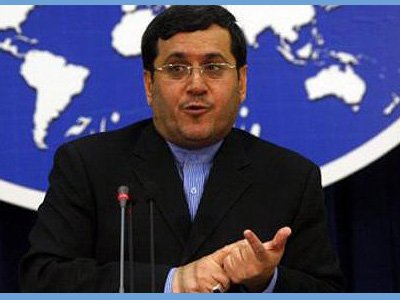
Iran is not willing to accept its nationals being forcibly deported from Australia but will welcome back citizens of their own free will, a top official warned Sunday.
The remarks by deputy foreign minister Hassan Ghashgavi came as Australian Foreign Minister Julie Bishop visited Tehran but failed to make a breakthrough on a long-running immigration dispute.
Ghashgavi, whose brief covers consular affairs, signalled the two countries are widely at odds and he even launched a thinly veiled dig at foreign states who send people back to their place of origin.
“Any forced deportation is contrary to human rights, but we believe that the voluntary return of every Iranian to his country is not a problem,” the ISNA news agency quoted him as saying.
“All immigration countries make a selection. They welcome those they consider useful to their society… and reject others to be forcibly deported.”
Iranians make up 23 percent of 1,848 people held in immigration detention centres in Australia, according to official figures from late March.
Under a hardline policy, asylum-seekers arriving by boat in Australia are subject to mandatory detention, and since 2013 have been denied resettlement even if found to be genuine refugees.
Iranians account for many of the 1,707 held on the Pacific island outposts of Nauru and Papua New Guinea, some of whom are still awaiting the final assessment of their claims for refugee status.
Bishop, who is due to leave Sunday capping a two-day trip to Iran, was the highest-ranking Australian to visit in 12 years.
New-York-based Human Rights Watch had urged Bishop to “press Iranian officials to address the violations that compel people to flee Iran and to seek protection elsewhere”.
And Australia’s Prime Minister Tony Abbott last week announced: “We will be talking to the Iranian government about taking back people who are… Iranian citizens, because they deserve to be in Iran. They belong in Iran.”
Refugee advocates say about 45 Iranian asylum-seekers are in indefinite detention in Australia, as they have already had their claims for refugee status rejected but are refusing to go home.
However at a joint press conference Saturday with Iran’s Foreign Minister Mohammad Javad Zarif, Bishop said the two countries had agreed to keep talking.
“We agreed to continue these discussions at consular level,” Bishop said.
Zarif added: “It is an important and sensitive human rights issue and we hope that (the visit) paves the way for improving the situation of the asylum seekers.”



